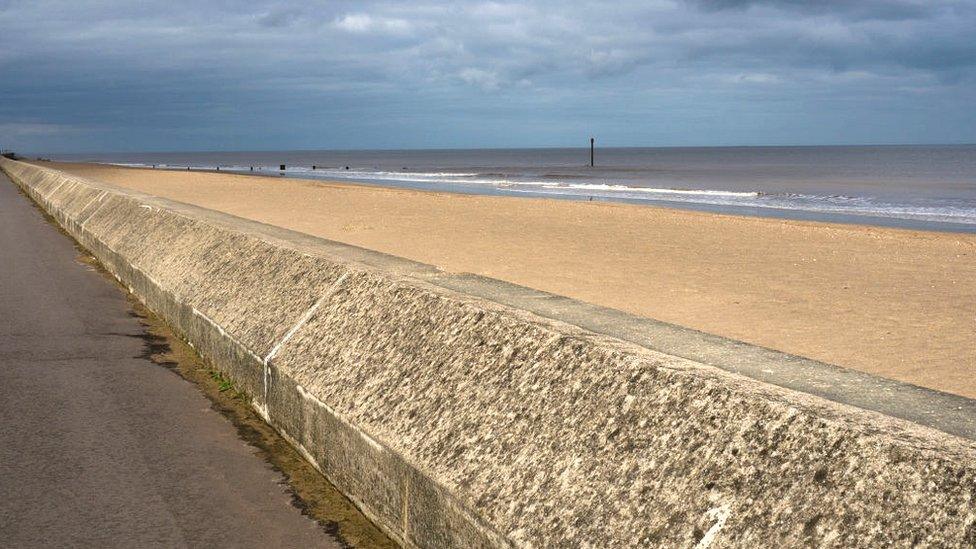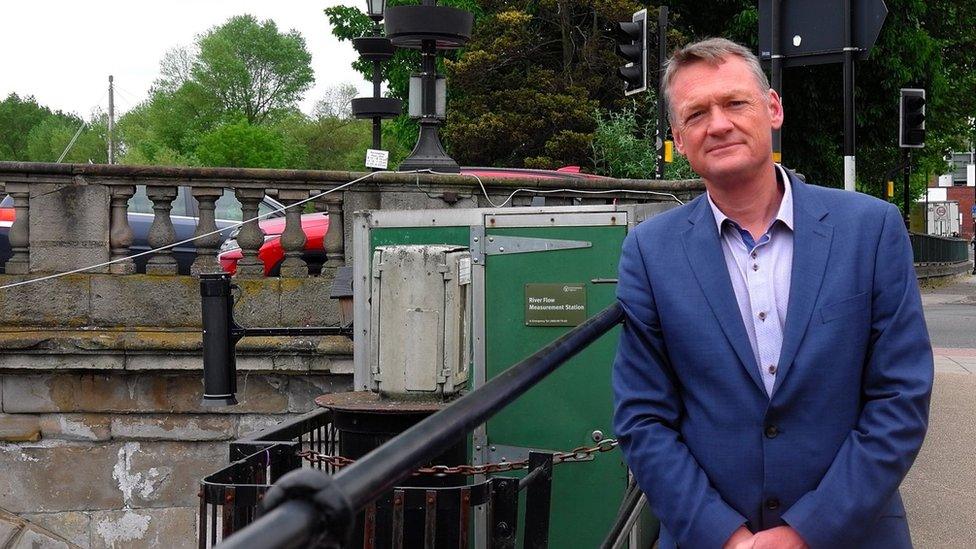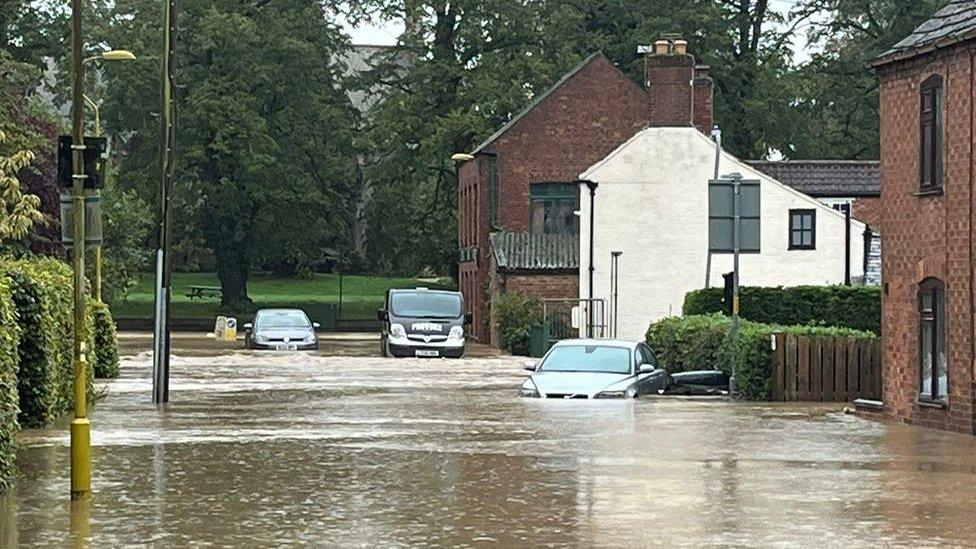Lincolnshire flood defences need earlier upgrade - Environment Agency
- Published
- comments

Flood defences on the Lincolnshire coast could be in need of repair sooner than previously thought
Flood defences on the Lincolnshire coast need to be upgraded decades earlier than anticipated, the Environment Agency (EA) has said.
Measures such as concrete walls are so damaged they could fail within five years, the agency warned in an assessment report.
It was previously thought an upgrade would not be needed for 50-100 years.
Councillor Colin Davie said the repairs could cost "hundreds of millions of pounds".
About 55,000 homes on the Lincolnshire coastline have been protected by beaches, sand dunes and concrete.
But the EA assessment has shown that some of the defences, including concrete wave walls, have been so damaged they could fail within five years if exposed to waves from the sea.
Deborah Campbell, area coastal manager at the EA, said: "What we've got in this report is a very early indication from an early assessment that we may have to do some different engineering works to enable us to build those defences higher and also that we might have to do that sooner than 50 years, so perhaps within the next 20 to 30 years instead."
Councillor Craig Leyland, leader of East Lindsey District Council, said the "right decisions must be made" to ensure funding was available.
He said: "It would be a mammoth task to relocate residents and businesses and all the assets that we have behind those sea defences, so we have to find a solution to this funding dilemma."
Mr Davie, flooding portfolio holder at Lincolnshire County Council, said: "It's going to cost a lot of money, in the hundreds of millions of pounds, but it will be found because the cost of not finding it would be much greater.
"The cost of communities flooded and having to be relocated would be a substantial cost."
'Learning to adapt'
However, a flood expert from the University of Hull said that just building bigger walls was not the only answer to the challenges of climate change and rising sea levels.
Dr Stuart McLelland, co-director of the university's Energy and Environment Institute, said: "I don't think, in the long-term, it's a viable option just to build larger and larger walls or to stop things changing.
"Some things will inevitably have to change but it's about learning about how we can adapt and that needs to happen over a longer period of time and in discussion with people."
He said necessary adaptions could including finding "nature-based solutions" to mitigate against the effects of rising seas but that might also involve "changing how we use the coast and who can live there".

Jane Kelsall, who owns a caravan near Mablethorpe, said she spent about half of the year living on the coast
Jane Kelsall, who has a caravan in Trusthorpe, near Mablethorpe, said it was her "bolthole".
"It's not just me, there's thousands upon thousands of us who need places like this," she said.
"My children and grandchildren have learned so much just being here.
"They can't get rid of all of that can they?"
A Department for Environment, Food and Rural Affairs spokesperson said: "Since April 2021, we have invested more than £1.5bn to protect better more than 67,000 homes and businesses across the country.
"This means that we have protected more than 380,000 properties since 2015 and more than 600,000 since 2010."

Follow BBC Yorkshire on Facebook, external, X (formerly Twitter), external and Instagram, external. Send your story ideas to yorkslincs.news@bbc.co.uk, external.
Related topics
- Published31 January 2023

- Published27 November 2023

- Published20 October 2023
